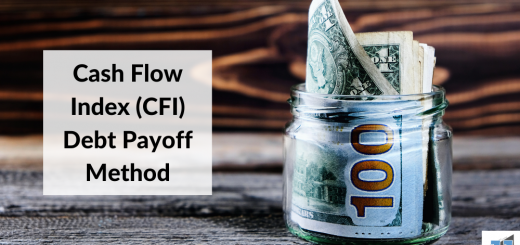What Is Tax Debt? How Can I Pay It Off Quickly?
Finding a letter from the IRS in your mailbox can be scary, but it’s not the end of the world. If you are in tax debt, which means you owe the IRS money after the filing deadline, there are several ways to deal with the situation.
It’s important to understand how the IRS charges interest and penalties on tax debt, the methods they use to collect money, and the best ways to repay your debt quickly.
What is Tax Debt?
Tax debt consists of any taxes you owe the IRS once the filing deadline has passed. This includes all remaining amounts owed after making a partial payment to the IRS.
This type of debt can also happen when the IRS changes your tax return, resulting in you owing more money.
Bottom line: If you underpaid the IRS during the tax year, you are in debt to them.
How Tax Debt Charges Interest and Penalties
Tax debt is different from other debts because the IRS can assess penalties on top of the interest owed. This can exponentially increase what you owe the IRS if you wait to pay it off.
Tax Debt Interest Charges
Any debt owed to the IRS is charged interest on a daily basis. The annual rate is currently the short-term interest rate plus 3% of the total debt owed (as of 2021). These rates change every quarter.
Since the interest is compounded daily, your balance can grow very quickly. Interest charges only stop when your tax debt is fully paid off.
Failure-to-File Penalties
If you fail to file a tax return by the tax filing deadline or extension deadline, the IRS will assess a failure-to-file penalty. The penalty is 5% of the unpaid money owed per month (or partial month) that the return is late, up to a maximum penalty of 25%.
A minimum penalty of $435 can be assessed for returns that are more than 60 days late.
Failure-to-Pay Penalties
This penalty typically starts at 0.5% of the total debt owed but can grow each month. It can get as high as 25% if not paid on time.
These amounts are added to your balance each month. This means that the total penalties can add up to much more than 25% overall.
How the IRS Collects Tax Debt
The IRS is known to be aggressive with its debt collection practices. They can seize your assets, garnish your wages and even apply a federal tax lien to your personal property.
Here are a few ways the IRS can collect on your tax debt.
Wage Garnishment
The IRS can garnish your wages, meaning that they are paid directly from your employer’s payroll. This reduces the size of your paychecks. The IRS can take up to 25% of your disposable earnings, seriously impacting your monthly income.
A wage garnishment can last until your debt is fully paid off.
Seizure of Assets
The IRS can levy your financial accounts and seize and sell your assets to pay off your tax debt. Yes, this means they can access your checking and savings accounts to collect on your debt. The IRS can also take the funds in your retirement accounts.
They can seize your personal property, including vehicles, furniture, and even your home.
Bottom line: The IRS can take almost anything you own to pay back your tax debt.
How To Pay Off Tax Debt
Tax debt might sound a little scary. If the IRS can basically take whatever they want, how can you get out of tax debt without losing everything?
Don’t worry. When it comes to how to pay off tax debt, you can be successful while still keeping your stuff.
The IRS is very welcoming to negotiation. You may even be able to reduce the total amount you owe or get your penalties waived.
Here are a few steps you can take if you are facing a tax bill from the IRS.
Reduce Tax Penalties & Interest Charges
IRS penalties and interest can be severe, but there are a few ways to reduce (or eliminate) these from your tax bill.
Prove the IRS Wrong
If you believe the IRS does not have the correct information about your tax situation, you can respond to their written notice explaining why. Make sure to attach any supporting documentation you have to prove your case.
Do not file an amended return. Instead, respond directly to the CP2000 notice by mailing it back with attached copies of your documents.
If the IRS accepts your explanation and reduces or removes your debt, they will waive the penalties and interest as well.
Give Reasonable Cause
The IRS understands that circumstances beyond your control may cause you to underpay your taxes. If you respond to their letter and give reasonable cause as to why you cannot pay, they may reduce or remove the penalties on your tax debt.
Here are a few examples of reasonable cause from the IRS website:
- Fire, casualty, natural disaster, or other disturbances
- Inability to obtain records
- Death, serious illness, incapacitation, or unavoidable absence of the taxpayer or a member of the taxpayer’s immediate family
- Any other reason which establishes that you used all ordinary business care and prudence to meet your Federal tax obligations but were nevertheless unable to do so
Remember, even if they remove your penalty, you still owe the tax debt and should pay as soon as possible.
First Time Penalty Abatement
If this is the first time you have filed a tax return or you do not have a history of late-filing and penalties, you may qualify for first-time penalty abatement. This waives your late-filing penalty as long as you have an agreement in place to pay off the taxes owed.
Set up an Installment Agreement
If you cannot pay your full tax debt, you can set up a monthly payment plan with the IRS. This is also known as an installment agreement.
With an installment agreement, you can stretch out your tax debt over time and make smaller monthly payments instead of paying it all upfront.
You will still owe penalties and interest on your debt until it is paid off, but the amount is usually much less.
It’s possible to apply for an installment agreement online for tax debt balances of $50,000 or less.
Submit an Offer In Compromise
If you cannot pay your tax debt and are looking for IRS debt forgiveness, you may be able to negotiate paying a smaller amount by submitting an offer in compromise (OIC). This tool is reserved for people with very large tax bills that could cause a financial hardship to pay off, even with an installment agreement.
To qualify for an OIC, you must meet all of the IRS requirement, including:
- File all tax returns you are legally required to file
- Have received a bill for at least one tax debt included on your offer
- Make all required estimated tax payments for the current year, and
- Make all required federal tax deposits for the current quarter if you are a business owner with employees
To submit an OIC, you can’t just pick a number you want to pay back. The IRS will consider all of the following when assessing an approved amount to pay back:
- Your ability to pay
- How much income you earn
- The total cost of your expenses
- Your current asset equity
From their website, the IRS has this to say about the OIC:
“We generally approve an offer in compromise when the amount offered represents the most we can expect to collect within a reasonable period of time.”
This means the IRS considers the OIC as a last resort to collect on your debt.
If you are truly stuck with massive tax debt and have no idea how to repay, you may be eligible for an OIC. To see if you qualify for tax debt forgiveness, you can check out the IRS OIC Pre-Qualifier tool.
Contact a Licensed Tax Professional
As a former enrolled agent, I know how valuable it can be to have a tax professional in your corner.
Tax codes change quickly. Understanding your rights and options as a taxpayer can save you thousands of dollars.
If you are in serious tax debt, consider contacting a licensed professional to assist you. Certified Public Accountants, enrolled agents, or tax lawyers are usually the most qualified to offer tax debt help.
Pay off Tax Debt Faster with Undebt.it
If you owe the IRS money, paying them off quickly should be your top debt payoff priority. Using the above strategies can help you lower your bill. Remember, paying it off fast is the best way to eliminate tax debt from your life.
With Undebt.it, you can create a custom debt payoff plan and put your tax debt at the top. Undebt.it will automatically calculate how quickly you can expect to have the debt paid off, showing your payoff date and total interest paid on the dashboard.
Are you ready to eliminate your debt once and for all? Sign up for a free Undebt.it account, and kick your tax debt to the curb!



